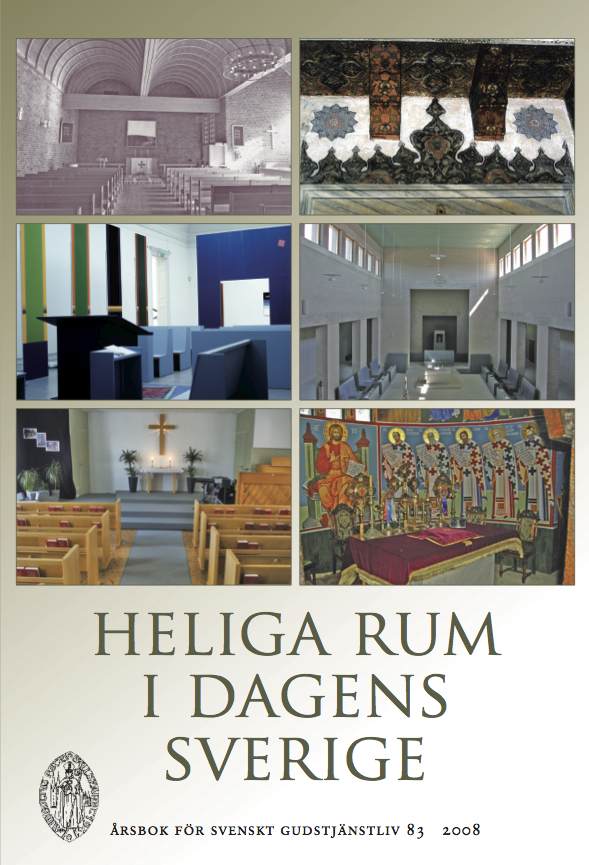Rum för möten med Jesus och för församlingsgemenskap i frikyrklig tradition. Historiska och teologiska perspektiv på de frikyrkliga gudstjänstrummens annanhet
Abstract
Space for Encounters with Jesus and for Congregational Fellowship in the Free Church Tradition. Historical and Theological Perspectives on the Otherness of Free Church Worship Spaces
The study addresses »the otherness» of the Free Church room. Different ecclesial fundamental practices in the Free Church congregation presuppose and create the separated room. In line with this understanding, there are certain acts that are holy – and the presence of God in such acts – neither the room in itself nor its decoration.
There are structures and outward appearances in the Free Church rooms that are inherited from the nineteenth-century revivalist movement. The room still has a certain flavour of Pietism and Puritanism, which were theological bases of the communities that we today refer to as Free Churches.
Also in our time, the Free Church service room has changed in line with impulses from the processes of theological renewal that go through the ecumenical, liturgical and charismatic movements. One such trend is that the form and the function of the rooms acquire a more sacral (i.e. sacramental) character. Another trend is that the form and the function of the room become more secularised, as Free Church rooms can be used for activities of many different kinds.
To be able to speak about holy rooms, a word of clarification is needed. It must be stated how we employ the concept of holiness. Is holiness about the participation in the divine, in other words that something limited can mediate the mystery? Or does holiness imply that something divine is going on; is it a spiritual experience or a pious activity?
The historical dimensions of the present study have shown that what we understand as a holy room or a room of holiness has to do with the fact that we subordinate ourselves to a certain religious tradition or a historical context.
The Bible and the Reformation tradition state that God does not need a house. However, Church history abounds with examples that prove that God’s congregation needs shelter. The reflection about the mystery of the incarnation, which we refer to as sacramental theology opens up for a better understanding of this paradox. According to this view, the human being, though being a finite creature, can be a carrier of the divine (finitum capax infiniti). Therefore there is a fundamental reason to why we seek the separated rooms in the world: God is to be found there, though there are no rooms spacious enough to house Him. Through reverence and silence other senses are opened towards a greater reality.
Downloads
Published
Issue
Section
License
© the authors, Laurentius Petri Sällskapet för Svenskt Gudstjänstliv and Artos & Norma Bokförlag. Copying and using material from Svenskt Gudstjänstliv for scholarly purposes is permitted as long as the source is indicated. For other uses, please contact the respective author as well as the publisher. Special restrictions may apply to images.


